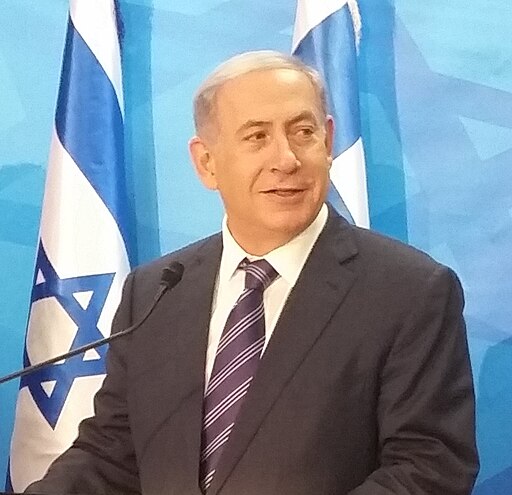Strategic Affairs Minister Dermer indicates potential for Israeli pullout from the Philadelphi Corridor in a second phase of negotiations, despite current opposition from Cairo and internal political debates
On September 4, 2024, Strategic Affairs Minister Ron Dermer suggested that while Israel will not withdraw from the Philadelphi Corridor during the initial phase of any ceasefire deal with Hamas, it might consider a complete withdrawal in subsequent negotiations. This statement comes amid heightened tensions and conflicting reports about Israel’s stance on the Gaza-Egypt border.
Dermer emphasized that in the first phase of a ceasefire deal, Israel will maintain its presence along the Philadelphi Corridor until a “practical solution” is found to ensure that Hamas cannot rearm and repeat the events of October 7. This initial phase aims to establish conditions for a permanent ceasefire, with future discussions potentially addressing long-term security arrangements for the border area.
Embed from Getty ImagesPrime Minister Benjamin Netanyahu had previously argued for a permanent Israeli presence on the Gaza-Egypt border, citing concerns about Hamas’s ability to rearm and regain control after the current conflict. His stance suggests that the IDF’s continued presence is essential for preventing future threats. Netanyahu’s comments, made during a press conference on September 2, highlighted his belief that no viable alternative would be established to secure the border in the foreseeable future.
Dermer’s remarks imply that while Netanyahu’s position is firm for now, there is room for negotiation in the future. He dismissed reports suggesting that Mossad chief David Barnea had been sent to Doha to negotiate a full withdrawal in the second phase, calling them “misleading” without providing further details.
The strategic approach contrasts with Netanyahu’s insistence on maintaining an indefinite presence along the border. The Prime Minister’s remarks indicate a belief that a secure alternative solution is unlikely to materialize quickly, suggesting a longer-term IDF presence may be necessary. However, Dermer acknowledged that discussions about the second phase of the deal could potentially involve different arrangements for the Philadelphi Corridor.
The issue has sparked significant debate within Israel and with international partners. Dermer emphasized that no concessions would be made to Hamas following the recent execution of six hostages, stressing that Hamas must face severe consequences to deter further violence. This position aligns with Netanyahu’s hardline approach, despite some internal pressures to prioritize hostage negotiations.
The situation has also strained relations with Egypt, which has opposed any Israeli control over the Philadelphi Corridor. Egyptian officials argue that such a move would breach the 1978 peace treaty between Egypt and Israel. Cairo has rejected Netanyahu’s claims that Hamas is smuggling weapons through the Sinai Peninsula, and regional allies, including Saudi Arabia and the UAE, have voiced strong support for Egypt, condemning Israeli statements as exacerbating regional tensions.
In contrast, Dermer has criticized Qatar for allegedly supporting Hamas and propagating anti-Israeli sentiments through its media. Despite this, Israel continues to coordinate closely with the U.S. on negotiations, aiming for a unified stance against Hamas. Dermer expressed hope that U.S.-Israeli alignment would facilitate a deal in the coming weeks.
However, the White House has indicated opposition to an ongoing Israeli presence in Gaza, aligning with previous U.S. positions that oppose prolonged military control. The conflicting signals from Israeli and U.S. officials highlight the complex nature of the negotiations and the challenges in reaching a comprehensive ceasefire agreement.
Analysis:
Political: The debate over the Philadelphi Corridor has intensified political discussions within Israel. Prime Minister Netanyahu’s insistence on a permanent IDF presence reflects his broader strategy of ensuring security and preventing Hamas from rearming. This stance has been met with internal opposition and pressure from political figures like Defense Minister Yoav Gallant, who advocate for prioritizing the lives of hostages over extended military operations. The potential for a future withdrawal in negotiations suggests a compromise may be necessary, impacting Netanyahu’s ability to maintain a hardline position while addressing domestic and international concerns.
Social: The ongoing conflict and the debate over the Gaza-Egypt border have significant social implications, particularly for Israeli citizens and residents in the affected regions. The IDF’s presence and the threat of continued conflict impact daily life, contributing to uncertainty and fear among civilians. The situation also affects public opinion, with divisions emerging between those who support a strong military stance and those advocating for more diplomatic solutions. The humanitarian impact on hostages and their families further adds to the social complexity of the conflict.
Racial: The broader regional context includes racial and ethnic dimensions, though the immediate focus of the debate is on security and military strategy. The conflict involves various ethnic groups, including Israelis and Palestinians, and regional dynamics influence perceptions and responses. The accusations against Egypt and Qatar, as well as the reactions from other Arab nations, reflect the intricate interplay of regional politics and ethnic relations.
Gender: Gender dynamics are less prominently featured in the current debate but still play a role in the broader conflict. Women and children, who are often disproportionately affected by military conflicts, face particular challenges during periods of heightened violence and instability. The impact on families, especially those with hostages, underscores the gendered dimensions of conflict and the need for considerations beyond military strategies.
Economic: The economic implications of the ongoing conflict and the potential for changes in the Philadelphi Corridor are significant. The cost of maintaining a military presence, coupled with potential damages to infrastructure and disruption of trade, impacts both Israeli and regional economies. The debate over the corridor’s future also affects economic stability, with concerns about the long-term financial burden of extended military operations and the economic impact on border communities.
